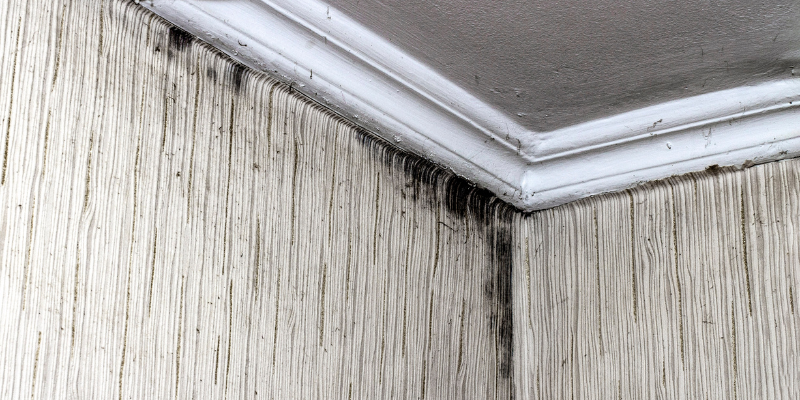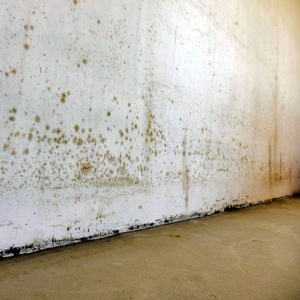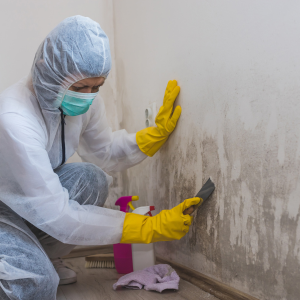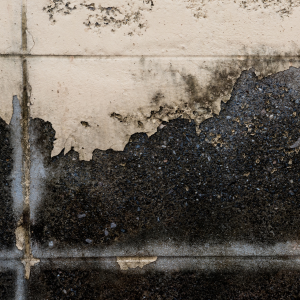
It can be hard to sell a house in Pennsylvania that has mold on it, but it’s possible if you know what to do. More and more homebuyers are aware of the dangers mold poses, so sellers need to make sure this problem is properly fixed. This guide gives you useful information on how to deal with the problems that come with selling a house that has mold on it, including how to fix the problem and how to market your home in a way that shows off its best features. In Pennsylvania’s competitive real estate market, you can turn potential problems into opportunities and make a sale by knowing what buyers are worried about and being open about how you deal with mold.
Brief Overview
You can sell a moldy Pennsylvania house if you know how. By evaluating and cleaning mold-infested areas, you can turn problems into opportunities. Pennsylvania law requires you to disclose mold problems to buyers. Stage your home, improve its curb appeal, and consider cash sales to increase its value. Working with experienced realtors simplifies the process and translates obstacles into a successful sale in a competitive market.
Key Highlights
- According to Pennsylvania’s real estate rules, sellers must tell buyers about mold problems. This lowers the risk of legal problems.
- Professional mold checks find hidden mold problems and make the buying process more open and trustworthy.
- Getting rid of mold can help a house’s sale chances by showing that the seller cares about safety and upkeep.
- Improving the property’s public appeal and staging can bring in buyers, even if they are worried about mold, which makes it easier to sell.
- Think about cash buyers if you need to sell quickly. They can make the process easier and usually offer lower prices.
Understanding Mold Issues in Pennsylvania Homes
Mold concerns plague Pennsylvania homeowners who are selling. Mold can grow in homes with fluctuating temperatures, posing health and legal risks. This section highlights the most common mold causes in homes for sellers. Learning about your legal obligations while selling a moldy house is vital to a successful sale. Knowing these variables can help homeowners sell their homes and attract buyers.
Common Causes of Mold Growth in Your Home
Mold grows quickly in Pennsylvania homes because the state’s weather is mostly warm, which makes it easy for mold spores to spread. Most of the time, moisture is what makes mold grow, especially black mold, which is known for being very bad for your health. Poor airflow is often the cause of mold growth. When homes don’t have enough airflow, wetness builds up, especially in wet places like bathrooms and basements, where mold can grow. Moisture problems can also be caused by plumbing or roofs that leak. If you don’t fix these leaks right away, they could cause a lot of mold problems.
Flooding or water that stays still for a long time, especially in basements, is another big cause. The weather and scenery in Pennsylvania can cause too much water to pool around a house’s foundation. This water can then seep into basements and cause a mold problem that lasts for a long time. Homes that aren’t properly sealed also let condensation build up, especially during the winter months, which gives mold spores the damp conditions they need to grow. Mold growth can be affected by the building materials used in homes. For instance, drywall and carpets, which are porous, can hold on to water longer than other materials. When these things get wet, it can take days for them to dry fully, which gives mold plenty of time to grow.
Fixing these issues can significantly reduce the risk of mold, which occurs in many Pennsylvania houses. To avoid these issues, homeowners should inspect and repair any water leaks in their homes on a regular basis. When reconstructing, you can prevent mold growth by using mold-resistant materials and implementing proper ventilation systems. Finally, resolving these issues ahead of time benefits the health of the residents and facilitates the sale process.
Legal Responsibilities When Selling a House with Mold in Pennsylvania
If you want to sell a house in Pennsylvania that has mold concerns, you need to know what the law says you have to do to prevent getting sued and make sure the deal is fair. Pennsylvania’s real estate transparency rule specifies that sellers must warn buyers about any mold problems they know about in the property. This means that individuals who might want to buy the house must be told about any known problems, such as visible or attempts to get rid of mold in the past. If the vendor doesn’t warn you about mold problems, you could sue them for lying or fraud. It’s also crucial to know what the buyer can do. People who want to buy a house have the right to inspect for mold; therefore, sellers should be ready for this during negotiations. Giving potential purchasers precise documents of any mold removal work that was done might help soothe them. This means that the seller is being honest and has also done something to solve the situation.

It’s recommended to speak with real estate brokers or attorneys who specialize in property sales if you’re unsure about the extent of the mold or what details you need to provide. They can ensure that you are adhering to all regulations and prepare you for any inquiries that potential purchasers may have. Furthermore, it’s critical to understand that a mold issue does not necessarily result in a lost sale. If they are certain that the mold issue has been resolved, many buyers may not detect it at first glance. Before listing their home for sale, sellers should employ a certified mold inspector to help them avoid legal issues. Obtaining a comprehensive report can provide buyers with peace of mind, help them prevent issues before they arise, and potentially raise the property’s value.
When sellers clearly communicate these responsibilities and act ethically, it not only aids in avoiding legal repercussions but also improves trust, facilitating a smoother selling process. To ensure you’re complying with Pennsylvania’s regulations, consider these key points when selling a house with mold:
- Disclose any known mold issues to potential buyers in writing.
- Provide buyers with any mold inspection reports conducted during your ownership.
- Hire a certified mold inspector to assess the property before listing.
- To avoid health risks and sale issues, professionally remove visible mold.
- Provide openness regarding prior mold removal initiatives and associated guarantees.
- The Seller’s Property Disclosure Statement should include information on mold issues.
By addressing mold concerns proactively, you can foster trust and facilitate a smoother transaction with potential buyers.
Don’t let mold issues hold you back. Swift Cash House Buyer can help! We buy Pennsylvania homes as-is, even with mold problems. Get a fast, fair cash offer and skip the hassle of repairs or disclosures. Sell your home quickly and stress-free today!
The Importance of a Professional Mold Inspection
If you want to sell your house in Pennsylvania and there are mold issues, you should have a doctor inspect it. In addition to being less expensive, properties with mold can make potential buyers terribly ill. A thorough mold check can reveal hidden mold issues and provide you with an honest assessment of the house’s condition. Because those who want to purchase the house need to know that it is safe, this inspection is quite important. You can prepare your property for sale in the best possible way if you understand the purpose of a mold inspection. Customers will trust and believe in them as a result of this.
What to Expect from a Mold Inspection
To determine the amount of mold in your home, a trained mold inspector will follow a series of procedures. A detailed inspection of the house is typically the first step in this investigation. In areas known to have mold, such as basements, attics, and bathrooms, the tester will check for water damage and mold. They may detect moldy areas that are difficult to see with the naked eye by using sophisticated instruments like moisture meters and infrared cameras. Because it examines areas of your home that are typically unseen, this inspection is even more comprehensive.

In addition to the mold’s surface, the air quality should be examined. To determine the number of mold spores, inspectors collect air samples from both inside and outside the home. A large amount of mold indicates a serious issue that requires immediate attention. In addition to demonstrating the severity of the issue, this information aids in determining the most effective solution. Surface sampling, which involves swabbing or taping areas that are prone to mold growth, is occasionally carried out to ensure a more precise assessment and determine whether the mold poses a risk. If you discover black mold, this step is extremely important since it could be quite harmful to your health.
Last but not least, the professional will provide you with a full report on what they found after the inspection. Most of the time, this report will give a summary of the mold problems found, their most likely sources, and suggestions for how to fix them. If you’re trying to sell your property, this document shows that health problems are being handled openly and in a timely manner. It helps with negotiations and makes buyers feel better about the state of the house. Sellers can better deal with mold problems while keeping the property’s value and appeal on the market if they know what to expect from the inspection.
How Mold Remediation Can Help in Selling a House
Once a professional inspection shows that there is mold, the next important thing to do to get your home ready to sell is to start getting rid of the mold. Mold removal is the process of getting rid of and cleaning up moldy areas in a home so that it is safe and appealing to potential buyers. To stop mold spores from spreading through the home’s air system, the affected places must first be contained. Experts use special tools and methods to get rid of all mold by removing infected materials and cleaning surfaces. This careful process is not only good for your health, but it can also help you sell your house by showing that you care about maintenance and buyer safety.
Mold treatment is popular because it prevents mold growth as well as eliminates it. Experts may suggest improving ventilation or fixing structural flaws that cause water buildup. These upgrades increase home value and lifespan. Use these tactics to reassure buyers that mold won’t return, which will keep them interested and cut prices. It reassures serious buyers who value health and safety that the home has been well-maintained.
Mold removal needs proof to build trust with the seller. Buyers gain from reports and receipts that help them solve problems. Writing down the repair method makes sure it is done right. Your home may stand out from the competition thanks to these proactive marketing and promotion initiatives. People want to know more, especially if the house has mold. Clients will believe you more, and it will be easier to make sales. Getting rid of mold makes the air better and makes your home more appealing to buyers who are knowledgeable and sure of themselves.
Thinking about selling your home, but worried about mold? Contact Swift Cash House Buyer to get a quick, fair cash offer for your Pennsylvania property. We buy houses as-is, even with mold issues.
Disclosure Requirements for Selling a House with Mold in Pennsylvania
Selling a moldy Pennsylvania house requires knowing what to say. Salespeople must warn buyers about mold infestations to protect themselves and them. Selling with full disclosure and telling buyers about mold are covered here. Being transparent and legal may ease transactions.
Why Full Disclosure is Essential When Selling a House With Mold in PA
Complete disclosure is needed by law and necessary to build buyer trust. When selling a moldy Pennsylvania house, be honest about its condition to avoid legal difficulties. Being honest about mold issues is important since it can affect the health of residents and the house’s construction. Pennsylvania real estate rules require sellers to report mold hazards in detail. This includes current mold, removed mold, and water damage that may affect mold growth. Transparent disclosure helps businesses avoid legal issues and builds buyer trust by showing their morality and dependability.
Buyers want to know the truth about a property’s condition, and they’re more likely to go through with a deal if they think they’re being told the truth. Full disclosure can also protect sellers from claims that could happen if they don’t tell new owners about mold problems after the sale. Legal issues not only cost money, but they also take time and cause stress, all of which can be avoided by being honest from the start. It might seem scary to tell everyone about mold problems, but it can also be a chance to show that any mold issues have been professionally fixed and that steps have been taken to stop them from happening again. This proactive method can make the property more appealing to buyers, who may see the value in buying a home where problems have been identified and dealt with.
Giving all the facts also makes the deal go more smoothly and the negotiations go faster. When buyers fully understand what they’re buying, they can make smart choices and are less likely to back out of a deal. So, full openness can turn a possible problem into an asset by showing off the house’s best features while being honest about its problems. It’s also a good idea to have a real estate agent or lawyer walk you through the process and make sure that all disclosure forms are filled out properly and that all the necessary information is given. If buyers are honest and take responsibility, they have a better chance of selling their home, even if there is mold on it.
Strategies for Disclosing Mold to Potential Buyers
If you want to inform buyers about mold issues, plan ahead and be clear. To fully understand the mold issue, inspect it first. Professional inspector reports reveal how bad the mold problem is and what was done to remedy it. These papers satisfy the law’s disclosure requirements and reassure potential buyers that the house is safe. Honest and upfront sellers get more business. This can streamline transactions and boost interest.
Another smart idea is to work with a real estate agent who knows the local rules on disclosures and how to sell homes with mold. If you want to know how to professionally tell buyers about mold, real estate agents with a lot of experience can help. They may alleviate buyers’ minds by being honest about the mold problem and pointing out the good things about the home because they know a lot about and have worked in the real estate business. Real estate brokers can also help sellers write disclosure statements that appropriately describe the state of the property. This makes it less likely that you will leave out important facts or make mistakes that could be used against you in court.
Telling a tale about the mold problem and how it was repaired will help you sell. This means talking about how the mold was removed and how it won’t come back. This might change a bad thing into a good thing by showing that the house is in better form and ready for a new owner. As part of the property’s package, sellers might also suggest alternative fixes or upgrades to buyers, such as stronger ventilation systems or moisture barriers. This not only makes the house worth more, but it also demonstrates that you plan to take care of it after the sale.
Lastly, being open isn’t only about providing people with information; it’s also about making them feel safe. Adding any upgrades to the home, like waterproofing or using materials that don’t produce mold, to the sale will make purchasers feel better. Sellers can successfully reveal mold, satisfy Pennsylvania’s disclosure regulations, and retain strong relationships with purchasers by following these tactics. This strategy helps transform a potential problem into a chance to show off the home’s overall value and strength, which will eventually lead to a successful sale.
Worried about selling your Pennsylvania home with mold? You can sell your house fast for cash in Pennsylvania and its other cities and avoid the stress of repairs or disclosures while closing quickly and confidently.
Preparing Your House for Sale Despite Mold Issues in Pennsylvania
Mold can make selling a Pennsylvania house difficult, but not impossible. Consider ways to prepare your home to reduce problems and attract buyers. Present your home well and improve its curb appeal for a good first impression. This section describes how to deal with mold and decorate your home to show off its best features. Learn how to make your home more appealing to buyers to sell quickly and for the right price.
Effective Staging Tips for Homes with Mold Concerns
Moldy homes need precise staging to show purchasers what they may see. Remove and fix the mold first. This approach enhances the room and demonstrates mold responsibility. Buyers can feel safe after a professional deep clean removes mold odors and improves air quality.
Once the mold problems have been fixed, clean up and organize each room to make the house look better. Buyers can see the full possibilities of a home without being distracted by mess. Use neutral colors in your home’s decor to give owners a blank slate for their own style. Add smart lighting to areas that have been affected by mold to make them brighter. Lots of light makes things look bigger and cleaner.
To draw attention away from any past mold problems, talk about your home’s good points, like its large rooms or charming building details. You might want to create warm and welcoming areas that are good for your lifestyle, like a well-staged living room that feels warm and useful. Bring in plants or other greenery that cleans the air and makes you feel calm. Putting these things together will make your home more friendly and appealing to buyers, even if it has had mold problems in the past.
Lastly, being honest is still very important when staging homes that have mold problems. Make a folder of documents to show potential buyers that shows the steps that were taken to fix the mold problem. This folder should include inspection reports and receipts for the work that was done. Giving them this information can ease their worries and help them trust the way you’re selling the house. By paying attention to these setting tips, you can market a home with mold problems in a way that makes it more appealing and guarantees a sale.
Improving Curb Appeal to Attract Buyer Interest
Curb appeal is very important for getting people to want to buy your home, and it’s especially important if you’re trying to sell a home that has mold issues. Improving the outside of your home can make a good first impression and get people interested, even if there have been mold problems inside. Start with the gardening. A well-kept yard shows that you care about the little things. Mow the lawn often, trim back any plants that are getting too big, and add new mulch to flower beds to make the area look nice.

Along with gardening, make sure the outside of the house is clean and well-kept. Pressure washing the driveway, walks, and siding can make the house look a lot better. Fix any cracks or damage that can be seen on the outside of the house, as these can turn off potential buyers. A freshly painted front door or new locks can make the house look nice and show that it has been well taken care of.
Lighting is another important part of curb charm that you shouldn’t forget about. Having enough outdoor lighting brings out the best features of the property and makes it safer, which makes it more appealing for viewings in the evening. For a better effect, think about adding soft lighting to your yard or updating your porch lights. Modern devices that use less energy are not only useful, but they also attract buyers who care about the environment.
Finally, tell them that the mold problems are over by keeping the outside of the house clean and clear of clutter. Throw away old pots and broken furniture that might hold water and help mold grow. Sharing what you know about how to avoid problems, like cleaning your gutters or fixing your drainage systems, can also make your home worth more. In a competitive real estate market, saying that you would keep the property mold-free will make it more enticing. A home’s outside that looks good and clear instructions on how to deal with mold can really get buyers interested and speed up the sale.
Exploring Options: Selling a House With Mold to Cash Buyers
In Pennsylvania, it can be hard to sell a house that has mold on it, but people can find new ways to sell their homes. Cash buyers are often a good option because the process is quick and easy, and there aren’t as many problems to deal with. Knowing the good and bad points of this method can help you decide if it’s right for you. Connecting with reputable cash buyers in Pennsylvania will also help you get a fair price and make the selling process go quickly. Let’s look into these points in more detail to help you sell a house that has mold on it.
Pros and Cons of Selling a House With Mold for Cash
Should you decide to sell your house for cash, especially if it has mold problems, there are pros and cons to consider. One of the best things about selling to cash buyers is that the deal could go through much faster. Buying and selling a house the old-fashioned way can take a lot of time because of all the checks and appraisals that need to be done. This is especially annoying when there is mold. When you pay cash, these problems don’t usually come up, so you can close the deal much faster, usually within a few weeks. This faster process can be very helpful for buyers who want to move quickly. Cash sales are appealing because they are quick and don’t require as many steps. This is especially true when time and ease of use are very important.
Another big benefit is that there are fewer or no risks, which is something that financed buyers usually want. People who pay cash are usually experienced investors who are ready to buy homes just the way they are, even if they know there are risks, like mold. This willingness can keep you from having to pay for fixes or mold removal that buyers with loans might want before closing on a deal. To protect themselves against these known risks, cash buyers often give less than the market value. This is one of the main problems with this method. Sellers have to weigh the benefits of a faster, easier sale against the fact that they might get less money from the sale.
However, it’s important to be aware of possible problems, mostly those that come from dishonest buyers who might take advantage of sellers. Not all cash buyers are honest, and sellers may get lowball offers that are well below what the market should expect. To avoid this, it is important to find reliable cash buyers in Pennsylvania, possibly through recommendations or trustworthy companies. By weighing these pros and cons, you can make a plan that will help you get the most out of a cash sale while minimizing the risks, especially when it comes to homes that have mold.
| Consideration | Potential Pros | Potential Cons | Recommendations |
|---|---|---|---|
| Targeting Cash Buyers | Possibly increased negotiation pressure. Transparency issues may arise | Lower offers than market value, Limited buyer Expectations for rapid decision-making | Highlight the speed of sale to attract busy buyers. Emphasize the “as-is” selling benefit. Use targeted marketing to reach investors |
| Property Condition | Cash buyers are often less concerned with mold issues. Opportunity to sell without repairs | Provide a clear disclosure of the mold problem. Offer inspection reports to build trust | Timing the market entry can maximize price. Collaborate with experienced realtors for insights |
| Market Dynamics | A favorable sellers’ market can boost buyer interest. High demand for opportunistic investments | Market fluctuations can affect buyer interest | A favorable seller’s market can boost buyer interest. High demand for opportunistic investments |
| Selling Strategy | Requires a tailored marketing approach. Potential increased marketing costs | Highlight unique selling points. Consider offering flexible closing dates | Creative tactics can differentiate the property. Opportunity to negotiate buyer incentives |
This table summarizes the essential considerations for selling a mold-affected property to cash buyers, highlighting potential advantages, challenges, and strategic recommendations for Pennsylvania homeowners.
Need to sell your Pennsylvania home with mold quickly? Cash home buyers in Philadelphia and nearby cities can help you skip costly repairs, avoid delays, and close on your timeline with a fair, hassle-free cash offer.
Ready to sell your home quickly? Avoid costly repairs and long waits. Call us at (610) 590-9845 for a fair cash offer and a smooth, easy sale.
FAQs:
What are the legal requirements for selling a home with mold in Pennsylvania?
Sellers must disclose mold problems to buyers under Pennsylvania’s real estate disclosure laws. This reduces legal dangers and reassures buyers. This includes historical mold removal attempts and ongoing mold issues.
How can mold remediation impact the sale of my home positively?
Mold removal indicates you care about safety and maintenance, which can boost your home’s value. It reassures buyers that health issues have been addressed, making your home more appealing and valuable.
What are common causes of mold growth in Pennsylvania homes?
Pennsylvania’s humid weather, poor ventilation, leaking roofs, plumbing issues, and insufficient insulation may promote mold growth. Moisture is what accelerates mold growth, especially in toilets and basements.
How should I prepare my home for sale to combat mold concerns?
Professional expertise and thorough cleaning can remove visible mold. Your home’s exterior might look better from the street with landscaping. To make your home more appealing, declutter, use neutral colors, and highlight its best characteristics.
What are the benefits and drawbacks of selling my home for cash in Pennsylvania, especially with mold issues?
Selling for cash without inspections speeds up the sale when mold is present. Cash purchasers provide less than market value to balance the simplicity of the deal with the risk of losing money.
Helpful Pennsylvania Blog Articles
- Can I Switch Real Estate Agents in Pennsylvania?
- Can You Sell a House That Failed Inspection in Pennsylvania?
- How to Sell a House with a Squatter in Pennsylvania
- How to Sell a House with Mold in Pennsylvania
- Selling My Parents’ House in Pennsylvania
- Taxes When Selling an Inherited Property in Pennsylvania
- Can Executor of Will Sell Property in Pennsylvania?

